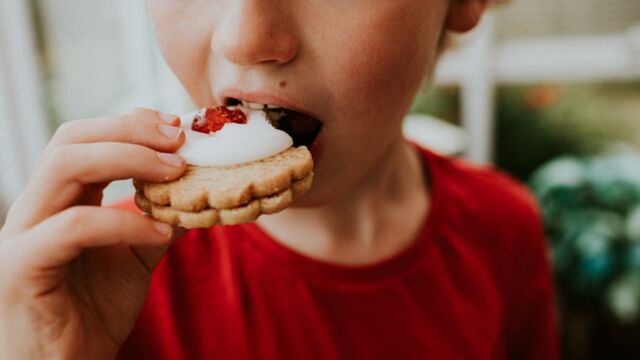Does sugar really make you hyperactive? Here's how it really affects you

With Halloween approaching, children are going to indulge in sugary treats, but do they really make them hyperactive?
The well-known phrase 'excess of sugar' is often used to blame a child's hyperactivity. Although it is very convenient to justify the agitated behaviour of one's kid, it would seem that no link can be made between excitement and excessive sugar consumption.
Discover our latest podcast
Sugar and hyperactivity, a tenacious myth
The origin of this belief is the Feingold diet. Very popular in the 1970s, this diet recommended not eating foods containing food additives because they were considered likely to promote hyperactivity. Sugar was not considered an additive per se, but was later on. That said, no study has ever proven this link. Lisa Rutledge, a nutritionist, said:
More under this adMore under this adThe idea that added sugars make children hyperactive is a myth, so research shows that hyperactive behaviour in children is not caused by this but by special events such as parties, celebrations, playtime etc.
The placebo effect of sugar
Dr Tom Robinson, director of the Center for healthy weight at Stanford Hospital, shared:
Since many parents and children expect sweets to make them hyperactive, it becomes a self-fulfilling prophecy... How we think we should feel has a lot to do with how we feel
Simply put: the placebo effect of our certainties plays out more than the actual consequences of sugar on our bodies. In this case, zero effects on hyperactivity. Sugar, or glucose, is even essential for the proper functioning of our brain. But it is better not to exceed 200 grams of sugar per day.
More under this adMore under this adAlthough sugar is not in itself harmful to health, its over-consumption has many detrimental effects. Among other things, the overproduction of insulin leads to the storage of fat, and therefore to weight gain. Eating too much sugar also leads to severe fatigue. Initially, there is a peak of energy, but this is quickly counterbalanced by a drop in blood sugar levels.
The effects on our skin are also noticeable. Elastin and collagen, two proteins responsible for the elasticity and density of our skin, become rigid under the effect of sugar. This encourages the appearance of wrinkles.
More under this adMore under this adThis article was translated from Gentside FR.
Sources used:
24 Matins: Le sucre ne rendrait pas les enfants hyperactifs
Stanford Medicine: Debunking a halloween myth, sugar and hyperactivity
Marie-Claire: Le glucose, le carburant du cerveau
Read more:
⋙ Combat your sugar cravings with these healthy alternatives
⋙ Diabetes: Eating this cheese daily could reduce sugar levels, research shows
⋙ Blood sugar: The two signs that point to 'dangerously high' sugar levels